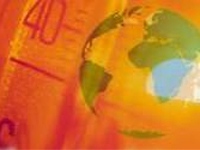
Après une analyse de la médiatisation des enjeux climatiques dans différents pays (USA, Inde, UK, France, Allemagne, Suède, etc.), les intervenants discuteront des conditions sociales qui président à la visibilité de certaines controverses dans certains médias. L’enjeu scientifique de ce colloque est de s’interroger sur les manières dont la sociologie des controverses et la sociologie des problèmes publics peuvent s’enrichir mutuellement.
- Dates : 20 et 21 septembre 2010 à Paris (France)
- Lieu : Maison des Sciences de la Communication, 20 rue Barbier-du-Mets, 75013 Paris
- Comité d’Organisation : Jean-Baptiste Comby (centre CARISM), Hélène Guillemot et Stefan Aykut (centre Koyré)
- Soutien logistique et financier : GIS Climat-Environnement-Société, Institut des Sciences de la Communication du CNRS
Résumé en anglais
Climate change controversies in the media. Sociological insights
Events over the past year — most notably the Copenhagen conference, controversies over the IPCC, and more recently the Gulf oil spill — have significantly shaped news coverage on climate change, likely marking a new era or stage in the issue’s “narrative cycle”. However, the interpretation of these events and their symbolic power depend on social and historical conditions that give them meaning and relevance. That’s why their impact on changes in news coverage is likely to differ in important ways across national setings.
One of the main differences resides in the quantity as well as content of media attention to controversies on climate change. In France for instance, discordant points of view (scientifically or politically) had little media exposure in the first decade of the years 2000, whereas “climatesceptics” had high public visibility in the US media landscape.
Sociological approaches help to explain these differences. They reveal a) how the climate issue’s “newsworthiness“ depends on the ways relevant social groups are structured and linked together at any given point in time, b) how they successfully access the media, and c) how issue framing is conditioned by the interplay of oft‐competing social agendas.
Invited papers will present different case studies or comparisons (US, UK, France, Portugal, Sweden, Germany, India, Brazil…), and endeavour to explain how climate change is“manufactured“ in the media of these countries. They will focus on controversies and seek to better understand when, how, why and where controversies about climate change appeared and moved within different public spaces (media, Internet, books, documentaries, etc.) in the last twenty years. We think this comparative perspective will provide insights into larger patterns as well as specifically national dynamics. It might also help to understand the relevance of controversies to societal decision‐making and public understanding.
We propose to structure the conference around the following hypothesis: public problems have distinct “careers” or “trajectories”, and offer more or less space to controversies at different moments. New framings can be explained by changing social configurations of the issue’s “ownership“ (Gusfield), as well as context‐dependent and dynamically negotiated relationships between scientists, state agencies, NGOs or journalists.
Such an angle invites the crossing of two sociological traditions. First, the sociology of public/social problems studies how facts or situations become problems to be taken in charge by themedia, the political field, courts, the educational system, the market, individuals, etc. Second, the sociology of controversies analyses how scientific facts are manufactured and how scientific disagreements, controversies or debates stay confined or circulate in different public arenas.
In the face of recent controversies on climate change (“climategate“), the topic is of high relevance. We thus hope our collective work during one and a half day can advance a commonunderstanding for fruitful questions, approaches, and research agendas.
Documents joints
Climate Change, Controversies, Media – Programme (PDF – 280.1 ko)
